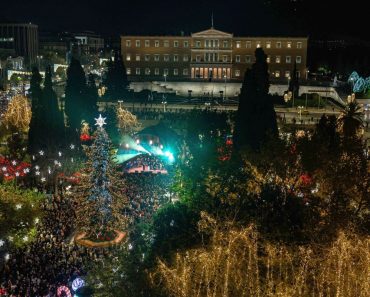DR. LUIS DIAS
I can’t believe a whole year has flown by so quickly. It seems like just a short while we were hosting Marie Bejstam’s choral singing and conducting workshops in Mapusa and Panaji. But it was a whole year ago.
To those of you who attended her workshops or sent your children to them, or came to the end-of-workshop Mapusa concert, Bejstam needs no further introduction. But a brief summary for the rest of you.
Bejstam is a driven culture entrepreneur and choir leader. She received her master’s degree of fine arts in music education and choral conducting at the College of Music in Orebro, Sweden. She works as a pedagogue, lecturer, entrepreneur, producer and conductor within the school system, through her own choirs, for the Royal Academy of Music in Stockholm as well as within the private sector for churches, TV-productions, and choirs within Sweden, etc.
She is also CEO and one of the two founders of a private culture house in the heart of Stockholm called Kulturfyren (the Culture Lighthouse). Kulturfyren provides a venue and a meeting place for cultural professionals and amateurs, adults and children, nationally and internationally within all fields of culture in a variety projects, but with a special heart for
choral culture.
Bejstam leads six different choirs and is a founder of the well-respected “Spektrum choirs” for children and youth in the diverse suburb of Stockholm, Botkyrka. The Spektrum choirs present choral concerts and musicals and also receive commissions from amongst others, clients such as the Royal family, the Polar Prize, the Sweden Winds Orchestra, the famous outdoor museum Skansen, and a variety of awards ceremonies.
Bejstam has for her social and international dedication and engagements in combination with her qualifications within children’s choral music been awarded ‘Children – and youth choir leader of the year 2009’ by the Swedish national organisation Ungikor (Young in choir), during the Eric Ericson Day in the concert hall Berwaldhallen.
“Working with children and choral music is the best thing I know, especially doing this in multi-cultural environments, with influences from all over the world,” is what Bejstam said when she was invited to Thessaloniki some years ago to make music together with 300 Greek
children and musicians.
It is our hope at Child’s Play India Foundation that we can also help Bejstam to reach out to hundreds of children and adults here in Goa.
My connection with her began in a convoluted way. In October 2014, I was one among 150 delegates from 28 countries (and the only one from India) chosen to participate in the first of its kind, four-day International Sistema Teachers’ Conference organised by Sistema Scotland in Stirling. It offered me a unique opportunity to meet like-minded individuals also committed to music education and social empowerment, from a wide range of locations around the world: Australia, Austria, Canada, Croatia, Denmark, England, France, Germany, Hungary, Ireland, Italy, Japan, Lithuania, Netherlands, New Zealand, Romania, Scotland, Serbia, South Korea, Spain, Sweden, Switzerland, United Arab Emirates, U.S.A., Venezuela, Vietnam, and Wales.
Among that vast community of nations, the Swedish contingent stood out pretty prominently. They kept breaking spontaneously into song at every opportunity, and their infectious enthusiasm got the rest of us singing as well.
This is where I first met Cecilia Ohrwall from El Sistema Sodertalje, close to Stockholm, Sweden. She already had a connection with India, and had been visiting and working with a music school in Coimbatore, Tamil Nadu. She was planning a return trip to India the following year and suggested visiting us at Child’s Play India Foundation in Goa.
Her Sangforeningen Qohr has since sung two benefit concerts for Child’s Play India Foundation, in 2016 and 2018, to packed audiences, and she and her choir members infused their enthusiasm to our children who participated in their workshops during their visits.
It is through Ohrwall that we then welcomed yet another choir from Sweden, ‘Vocal Colors’ in 2019, led by Bejstam and Charlotte Rider.
Those of you who attended that concert will remember their concert, especially their surprise encore, an a cappella arrangement of ‘Tambde Rosa’ that her Swedish youth choir sang in Konkani. The video of that performance quickly went viral.
Bejstam transmits the “joy of singing” to young and old whose prior singing experience ranges from absolute novices to those striving for excellence in choral singing.
In one of her choirs, around a hundred singers ranging from teenagers to octogenarians come from all over Sweden to practice choral singing together for a 10-week period. “Any vocal ability will do! We do two themed periods per year, both of which end with a workshop day, together with musicians and artists, as well as a couple of highly appreciated and well-attended concerts,” she said.
Another choir caters to shilled choral singers. “Joy of singing is of course the foundation, and in this choir, we work at an advanced level that requires good singing habits and skills. We work with many different genres and with stage performances. This is a choir for those who want to work at a musically high level, but are also interested in making choral singing interesting on stage.”
‘Vocal Colors’ is a vocal ensemble that sings a capella music of all genres. The warm-hearted, music-loving and well-trained young singers come from all over Sweden and gather for repetitions five weekends a year. In its second season, it embarked on its first international tour in 2019, with a benefit concert in Goa for Child’s Play India Foundation. It is they who sang the ‘Tambde Rosa’ encore
mentioned above.
There are several reasons for the strong Swedish dominance in choral singing in general. It has been estimated that as many as six to seven per cent of the Swedish population regularly sing in choirs. To put it differently, 600,000 Swedes are estimated to have an active involvement in choirs (2014) out of a population of just
nine million.
The Swedish choral director and influential choral teacher Eric Gustaf Ericson (1918 – 2013) had an enormous impact on a capella choral development not only in Sweden but around the world. Ericson has had a huge influence on Bejstam as well; she knew him personally and considered him her “guru.”
It is our great privilege to host Bejstam and bring some of that Swedish passion for choral singing to Goa.
Child’s Play India foundation is pleased to present a series of choral workshops conducted by Bejstam titled ‘Songs of Hope 2025’ at the following locations and dates: January 7 to 10, 2025 at Mapusa (ages eight-21 years); January 11 to 14, 2025 at Panaji (ages eight-18 years); and from January 23 to 25 at Panaji (ages 18 years and above). There is no entry fee, but to register, please message 9922642059 with participant’s name, location, and age.
Let us bring in the New Year 2025 with more songs of hope! Happy New Year!






